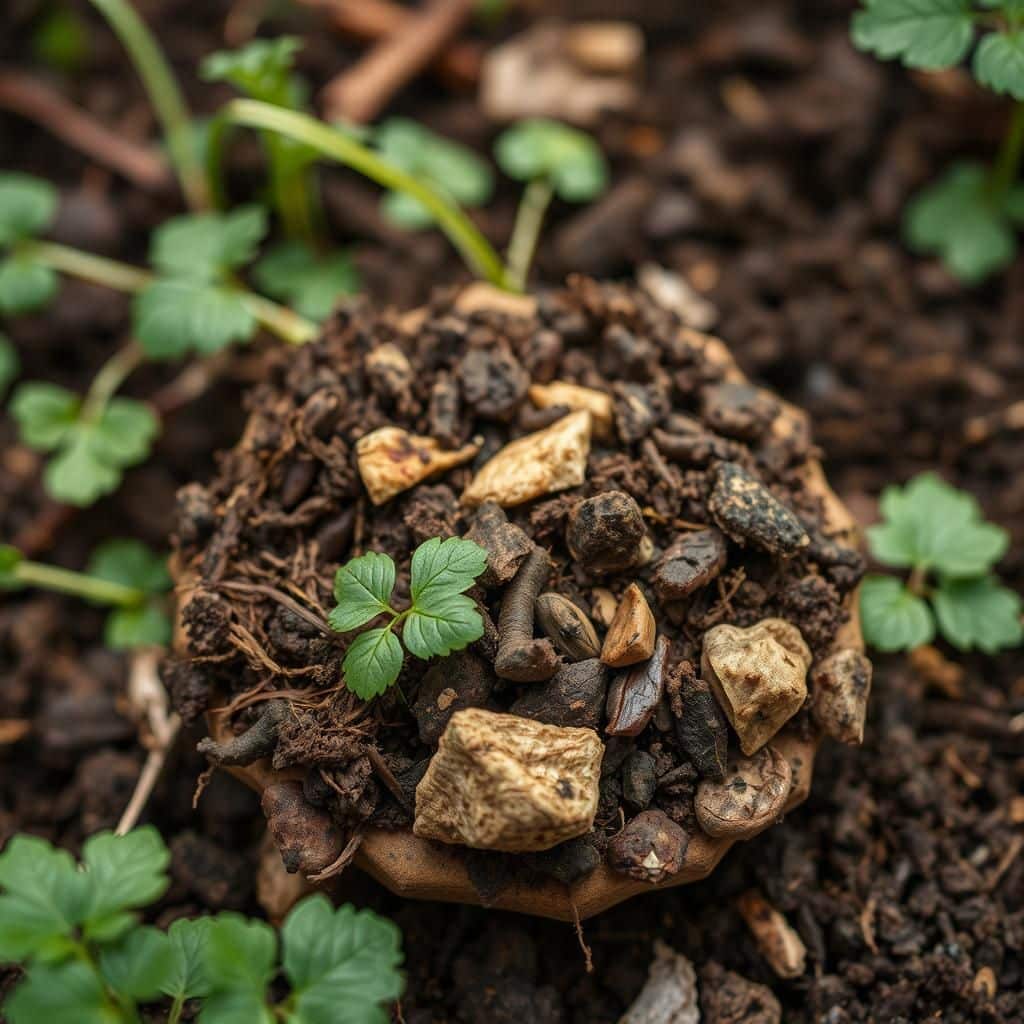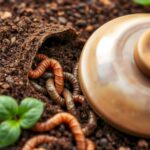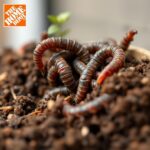How do you know that the compost is done or ripe? Essential Tips for Perfect Composting Results

Composting is an eco-friendly practice that transforms organic waste into nutrient-rich soil. However, knowing when your compost is fully matured—often referred to as done or ripe—is crucial for achieving optimal results in your garden. Understanding the signs of finished compost, such as color, texture, and temperature, can significantly impact plant health and growth. In this article, we'll explore essential tips and indicators to help you determine when your compost is ready for use. Whether you're a seasoned composter or a beginner, these insights will ensure you reap the full benefits of your composting efforts.
How to Determine if Compost is Ready?
To know if your compost is done or ripe, look for a few key indicators: the compost should have a dark, crumbly texture resembling soil, a pleasant earthy smell, and little to no recognizable food scraps or organic materials. The temperature of the compost should have stabilized, typically around ambient temperature. Additionally, if you sift through the compost, you should find a mixture that feels moist but not wet, and has an even consistency, indicating that microbial activity has completed the decomposition process.
Visual Indicators
The visual characteristics of finished compost include a dark brown to black color, and it should appear crumbly and fine in texture. This is a sign that the organic materials have broken down significantly. If you notice large pieces of organic matter, such as fruit peels or leaves, the compost likely needs more time to decompose. An ideal compost will also have a uniform appearance with no distinguishable remnants of the ingredients that were added initially.
Smell Assessment
A key indicator of ripe compost is its smell. Finished compost should have a rich, earthy aroma, similar to that of fresh garden soil. If your compost emits a strong, unpleasant odor, it may be a sign of insufficient oxygen or too many wet materials, indicating that it needs more time to cure or requires additional aeration.
Temperature Check
Monitoring the temperature is another method to assess compost readiness. During the active composting process, temperatures can rise significantly as microorganisms break down organic material. When the compost cools down to the same temperature as the surrounding environment, it generally indicates that the active decomposition has slowed and the compost is moving towards a finished state. Typically, a temperature of around 60°F (15°C) is a sign that the compost is ready.
See also:
Moisture Content
The moisture level of the compost is essential in determining readiness. Finished compost should feel like a damp sponge, moist but not soggy or overly wet. If it feels too dry, additional moisture may be needed, while overly wet compost can lead to problems with odor and slow decomposition. Proper moisture levels are vital for the organisms that continue to break down the material even when the compost is nearly finished.
Testing for Nutrient Composition
Another way to assess whether your compost is complete is by analyzing its nutrient composition. Ripe compost should have a balanced ratio of nitrogen, phosphorus, and potassium (N-P-K), which will be in line with what plants require for healthy growth. Testing the nutrient levels can show if the compost is ready to be added to your garden or if it still requires further processing to enhance its quality.
| Indicator | Description |
|---|---|
| Visual Appearance | Dark, crumbly texture resembling soil |
| Odor | Pleasant, earthy smell without strong odors |
| Temperature | Stable at ambient temperature |
| Moisture Level | Moist but not wet; feels like a damp sponge |
| Nutrient Composition | Balanced N-P-K ratio for healthy plant growth |
Signs of Mature Compost You Should Look For
Determining when your compost is done involves observing several key characteristics. The color should be a dark, rich brown, resembling soil, and the texture will be crumbly, indicating that the materials within have fully decomposed. Additionally, a well-matured compost often has an earthy smell, lacking any strong odors from the original materials. You may also notice a decrease in volume, as organic materials break down, and a mix of various forms of decomposition—from recognizable scraps to an even consistency—can be a clear indicator that your compost is ready for use in your garden or landscaping.
Visual Indicators of Finished Compost
One of the most straightforward ways to assess if your compost is ready is by examining its appearance. Mature compost should be dark brown or black, often resembling soil but with a coarse texture. If you see identifiable bits of food scraps and other organic materials, it's a sign that the compost needs more time to break down. Furthermore, the presence of plant matter color can help you judge its readiness; a uniform color throughout the compost pile indicates that decomposition is complete.
Smell Test: A Sign of Ripe Compost
The odor of your compost is another crucial factor in determining its maturity. Finished compost typically emits a pleasant, earthy scent, which indicates that the biological processes are thriving. Conversely, if your compost emits a strong, foul smell reminiscent of rotten eggs or ammonia, it is a clear sign that the compost is not yet ready. These unpleasant odors suggest an imbalance in the decomposition process, which requires adjustment before proceeding with usage.
See also:
Temperature Control in Composting
Monitoring the temperature of your compost pile is essential, as it can indicate the stages of the composting process. When the pile is actively decomposing, you will notice that it can heat up significantly, often reaching temperatures between 130°F and 160°F (54°C and 71°C). Once the temperature starts to drop back to ambient levels, it signals that the microbes have finished their work, and it's time to check for other indicators of a mature compost.
Texture and Consistency of Compost
The texture plays a vital role in evaluating the compost readiness. As materials decompose, they should break down into a crumbly, soil-like consistency. If your compost has a clumpy texture with remnants of material that can be easily recognized, it is an indication that more time is needed for decomposition. Ripe compost should easily crumble between your fingers, and any large particles should have a chance to rot down further.
Timeframe for Proper Composting
While various factors can influence the duration it takes for compost to mature, generally, it can take anywhere from two months to a year. Factors such as the size of the compost pile, the carbon-to-nitrogen ratio, and the method used for composting can all affect this timeframe. Monitoring the pile at regular intervals for the indicators previously mentioned will help you determine the optimal time to use your compost effectively.
Questions from Our Readers
How do I know when my compost is ready to use?
To determine if your compost is ready to use, look for a dark, crumbly texture and an earthy smell. If it has a brownish-black color and resembles rich soil, it is likely ripe for use in your garden.
What is the ideal temperature for finished compost?
Finished compost typically cools down to ambient temperature, around 60-70°F (15-21°C). When the compost no longer generates heat during the decomposition process, it indicates that it is likely done.
See also:
Can I see any recognizable materials in finished compost?
No, a sign of finished compost is the disappearance of recognizable materials. If you can still see large chunks of food scraps or yard waste, it’s a clear indication that the compost is still decomposing.
How long does it take for compost to become ripe?
The time it takes for compost to become ripe can vary, but on average, it takes between 2 to 6 months. Factors such as moisture, aeration, and the types of materials used can affect the speed of decomposition.

If you want to read more articles like How do you know that the compost is done or ripe? Essential Tips for Perfect Composting Results, we recommend you check out our Compost category.
Leave a Reply
Related Articles